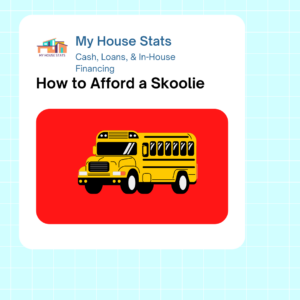Everyday Life’s Fading Conveniences
Universal basic income is being discussed more and more. Over the past two years daily life in North America has changed mainly in these ways:
- housing and rent prices skyrocketing, forcing more people into homelessness
- health care wait times increasing and American-style privatization becoming a possibility in Canada
- inflation and shrink-flation making paychecks experience reverse growth spurts
- population growth, especially in Canada
- layoffs in many different industries and increasing competition for even unskilled jobs
- artificial intelligence now doing the jobs humans used to do

These things have been on the uptick for at least a couple of years. Not just in Canada, but also the United States. What’s behind it?
The Death of the American Petrodollar
The United States has maintained a healthy economy since 1974 through the petrodollar. This was done by having Saudi Arabia, the country with the second highest oil reserves on the planet, sell oil in US Dollars in exchange for having the US military’s protection. The United States involvement in countless invasions, government overthrows, economic hits, economic sanctions, and coup d’etats on many countries made the US the greatest threat to world peace in 2013. The countries that got tired of this formed BRICS. Recently Saudi Arabia stopped selling oil in US dollars and will now sell it in Chinese yuan. Many countries favour the economic co-operation and win-win feelings presented with China.

Shrink-flation
For about a couple of years now inflation has drove the price up of literally everything. It’s inspired the creation of things like the Roblaw$ shirt.
Health Care Wait Times
Since the COVID-19 panic that began at the end of 2019 health care wait times have increased in Canada. One possible reason is there’s less doctors available because some doctors were not comfortable getting the COVID-19 vaccination in order to keep working. Another reason may be because Ontario wants American-styled private health care.
Layoffs in Many Sectors, Mainly in Technology
Over the past year it seems like companies in all sorts of industries are laying off people. At first it seemed the technology industry was the main target, but over the past year or so other industries have been affected.
Why so Many Layoffs?
OpenAI releasing their ChatGPT artificial intelligence (AI) service changed the game of life. Since then companies realized they could use AI automate a lot of jobs for reasons such as to
- increase product quality (58% of firms)
- increase output (49%)
- reduce labor costs (47%)
- use them as a substitute for workers (33%)
Stiff Competition for Housing and Jobs
Canada has seen record population growth, especially in 2022. In addition to the inflation, competition for housing and jobs has become tougher with the increased population. As a result, rents have become unaffordable for some and forced them into homelessness in both the United States and Canada. Tent cities are becoming more common and visible. The same job can now see thousands of applicants. In Ontario, Canada this has lead a million people to visit food banks in the span of a year. This was recorded between March 2023 and 2024 by Feed Ontario.
To Introduce Universal Basic Income (UBI)
Elon Musk said this when asked about mass unemployment by Mohammad Al Gergawi at the World Government Summit (WGS) on February 15th, 2017: “And I think ultimately will have to have some kind of universal basic income. … Because there are no jobs. Machines, robots are taking over. There will be fewer and fewer jobs that a robot cannot do better.”
Universal Basic Income Makes People Less Productive
Similar to welfare, a study found that universal basic income leaves poor people worse off, with an overall reduction of over 20 cents per dollar received. It makes people produce and work less, and could also discourage high earners from working if taxes are raised to fund universal basic income for low-earning people.
And Makes Us Ask What We’ll Do When AI Replaces Human Workers?
Yuval Harari of the World Economic Forum wrote a book about what to do with people when AI takes all the jobs. In his “Why humans run the world” TED Talk on July 24th, 2015 he explained: “In the Industrial Revolution, we saw the creation of a new class of the urban proletariat. And much of the political and social history of the last 200 years involved what to do with this class and the new problems and opportunities. Now, we see the creation of a new massive class of useless people. As computers become better and better in more and more fields, there is a distinct possibility that computers will outperform us in most tasks and will make humans redundant. And then the big political and economic question of the 21st century will be, what do we need humans for? Or at least, what do we need so many humans for?
…
At present, the best guess we have is, keep them happy with drugs and computer games.”
Which is Very Similar to Aldous Huxley’s Vision of the Future
Aldous Huxley wrote the book Brave New World in 1932, a book predicting a futuristic world state where people are bred to accept the class they are part of by being given drugs known as soma in the book. In his interview with Mike Wallace on May 18th, 1958 he explained this: “If you want to preserve your power indefinitely you have to get the consent of the ruled. And this they will do partly by drugs as I foresaw in in Brave New World. Partly by these new techniques of
propaganda they will do it by bypassing the sort of rational side of man, and appealing to his subconscious and his deeper emotions and his physiology even and so making him actually love his slavery. I mean I think this is the danger: that actually people may be in some ways happy under the new regime, but they will be happy in situation where they ought not to be happy.”
Summary
These trends grow more apparent by the day. There’s even Mason jars being shown in groceries stores. Maybe it’s a clue for shoppers about how to prepare for what’s coming down the road. It seems like the everyday conveniences we used to enjoy before the COVID-19 panic are eroding away slowly enough for very few people to notice. What do you think the end result will be when all the things we see in daily life reach their climax? Leave a comment with your answer.


